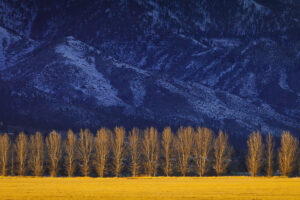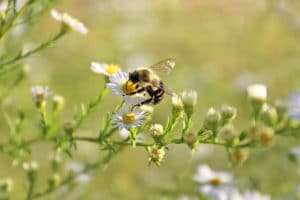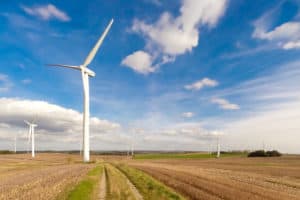President-elect Obama showed up unannounced in Blue Grass late Wednesday afternoon as I was pulling in with a load of split firewood. He wore old jeans and work boots. I tossed him a spare pair of leather work gloves, and we started pitching sticks on the pile behind my back gate.
He didn’t say anything for a while.
Lucy and Sophie, our two Yellow Labs, sniffed him up, decided he wasn’t edible and wandered off to shampoo themselves in fresh cow flops. The results of good breeding always amaze me.
“Ever live out here?” I asked.
“Nope. Big cities. Honolulu. New York, Boston, Chicago.”
“Aren’t too many Obamas in Blue Grass,” I admitted. “Baracks are scarce, too. You’d get a nickname pretty fast. Something like Goose or Tater.”
“How about Bub?”
“There we go,” I said.
“What’s that?” he asked, pointing to the truck’s tool rack.
“It’s a splitting maul. Eight pounds. Plastic handle. Made in Taiwan.”
“What are those?”
“Protective chaps. Husqvarna. Swedish.”
“That?”
“Stihl chainsaw. German outfit with a plant in Virginia Beach.”
“Gloves?”
“China.”
“That funny-looking axe thing?
“Now that’s a tie-pick. A local farmer in his 80s made them from scratch. He passed away recently. Hickory handle. Had his own blacksmith shop. The metal head has a point that you sink into a stick which you can lift into the truck without bending over.”
“Clever. Local crafts are good,” he said. “Folk art.”
“Can’t run a community economy on limberjacks and whimmy-diddles.”
“America has gotta make stuff again,” he said. “Good stuff. Not junk. Manufacturing helps everybody, up and down the income scale. We need to get plants back into the cities, the Rustbelt and the small towns that have been abandoned. Maybe the way to do that is to give really big tax breaks to businesses that set up in these orphan areas.”
“Know anything about farming?” I asked.
“‘There was a farmer who had a dog, and Bingo was his name-O.’ My kids taught it to me.”
“It’s a start.”
“Maybe we’ll put a little garden in at the White House. Do the work ourselves.”
“Good metaphor…also good for you. Don’t make a big deal about it. Don’t staff out the weeding.”
“I’ve met a lot of farmers,” he said. “I want to help the little guys stay in it. They seem to be efficient, but the money squeeze kills them. When they quit, the small towns die.”
He stopped and then leaned on the tailgate with his foot on the bumper. He bummed a Lucky out of my pack. I couldn’t tell whether he inhaled. “Michelle’s on my case,” he said as he waved it around, unlit. “Girl knows everything.”
“I take it you’re here because you want to touch base with the grass roots?”
“Wisdom comes up from the bottom of the barrel. So what do I do now?” he asked.
“Don’t listen to people who want to give you advice.”
He laughed. “Seriously.”
“I am. Your win was largely self-made and independent. Keep tacking toward what’s best for the general interest, not the narrowest interests of your political allies. Governing has become largely about who gets how much money and who gets to keep how much. Change that, and you’ve really done something.”
“What does rural America want?”
“More money. Jobs. Lower taxes. Subsidies. Loopholes. Pork. Less hardship. More security. Health care. Retirement. Easier lives. Peace. Pride. We’re just like everyone else.”
“So you’re saying don’t do anything special for farmers and rural communities?”
“No. I’m saying do things out here only when they make sense for everybody. If, for instance, you look at corn-based ethanol objectively and decide that America, as a whole, benefits from this industry, use federal resources to nudge it along. But if your research shows that it’s not a good deal, then back off. Same with clean-coal energy, nuclear power, crop subsidies, farm taxes and everything else.”
“It’s a simple principle,” he said.
“But hard to practice.”
“What should I do about rural policy?”
“We have no rural policy. We have no policy, because we don’t ask deep questions. Is it in the country’s best interest to have more of us live on farms and in rural areas or not, and why? Are we, as a country, better served by cheap food or more expensive food, by cheap energy or more expensive energy, by more land devoted to agriculture and timber or less, by using our natural resources right now or husbanding them for the long term? Answer those kinds of questions, and policies drop into place. Duck them, and you continue mish-mashing around.”
“I’m getting positions papers from everybody. Academics, trade groups, lobbyists….”
“I bet you are! You’re seen as the biggest piñata since Lyndon Johnson.”
“I know. But I’m not. I’m going to do it different. I’m going to cut spending where I can so that I can cut taxes responsibly. I’m thinking about cutting tax rates on business and give breaks on domestic investment. Maybe cut the capital-gains rate in half for two years, see if it helps. I’d like to cushion the losses too. Business creates jobs, which creates income, which is what we need.”
We finished. He wiped his brow.
“Sweat happens,” he laughed. “Well, time to get back.”
“Come again, Bub.”
This content may not be used or reproduced in any manner whatsoever, in part or in whole, without written permission of LANDTHINK. Use of this content without permission is a violation of federal copyright law. The articles, posts, comments, opinions and information provided by LANDTHINK are for informational and research purposes only and DOES NOT substitute or coincide with the advice of an attorney, accountant, real estate broker or any other licensed real estate professional. LANDTHINK strongly advises visitors and readers to seek their own professional guidance and advice related to buying, investing in or selling real estate.









Add Comment